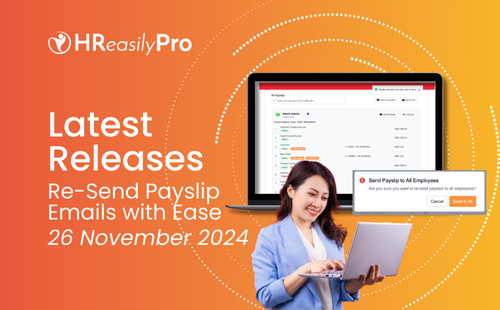
Career development and training are vital elements of a successful workplace. For employees, these programs offer paths to growth and advancement. For companies, they contribute to a more skilled and engaged workforce. As we celebrate Labour Day, it’s an ideal time to acknowledge the value of these initiatives and honour the dedication of employees.
The Importance and Benefits of Career Development and Training
For employees:
- Skill Development: Training programs significantly empower employees by providing them with access to new skills and enhancing their existing expertise. This equips them with the tools they need to excel in their roles and remain agile in response to changing job demands.
- Career Progression: Career development efforts offer employees clear and actionable pathways for growth within the company. These structured initiatives enable them to achieve their professional aspirations and ascend to new heights in their careers.
- Enhanced Job Satisfaction: When employees receive tangible support for their career journeys, they tend to experience a notable increase in job satisfaction. This contentment fosters a deeper connection to the company and enhances retention rates.
- Boosted Confidence: Continuous learning and development initiatives play a crucial role in elevating employees’ self-assurance in their abilities. This heightened confidence translates to superior performance and encourages them to innovate and push boundaries.
For companies:
- Increased Productivity: Investing in a highly skilled workforce results in marked improvements in efficiency and effectiveness. This directly drives higher productivity and leads to a substantial boost in overall performance across all areas of the business.
- Retention of Top Talent: Offering career development and training opportunities is key to retaining top-performing employees. This reduces turnover rates and mitigates the significant expenses linked to recruiting and onboarding new talent.
- Elevated Reputation: Companies that prioritise employee growth earn a strong reputation as desirable places to work. This distinguished status attracts top-tier candidates and strengthens the employer brand, giving the company a competitive edge.
- Innovation and Flexibility: Promoting continuous learning empowers employees to bring innovative solutions and fresh perspectives to the table. This nurturing of creativity drives innovation and positions the company to thrive in its industry by staying ahead of emerging trends and challenges.
Strategies for Effective Career Development and Training Programs
- Needs Assessment
Conducting a thorough needs assessment is a critical step in designing effective training programs. This process involves systematically identifying any skill or knowledge gaps within the workforce. By pinpointing areas where employees may require additional support or development, HR can tailor training initiatives to align closely with the specific requirements of both the employees and the organisation as a whole. Customising programs to address these unique needs ensures that training is targeted and impactful, fostering a more capable and efficient workforce.
- Mentorship Programs
Establishing mentorship opportunities creates valuable relationships between experienced employees and those who are aspiring to advance in their careers. These pairings facilitate a supportive environment where mentees can receive personalised guidance and insights from their mentors, drawing from the mentors’ wealth of experience and expertise. Through this exchange, mentees gain knowledge, advice, and encouragement that can help them navigate their professional journey and achieve their career goals. In turn, mentors benefit from the opportunity to give back, share their experiences, and develop their leadership skills. Mentorship programs ultimately strengthen the organisation’s culture of collaboration and continuous learning.
- Performance Management
Implementing an effective performance management system is essential for guiding employees in their professional journeys. This involves conducting regular performance reviews to assess employees’ work and set clear, actionable goals tailored to their career aspirations. By providing consistent, constructive feedback, managers can help employees understand their strengths and areas for improvement, offering targeted advice to support their development. These reviews not only drive individual growth but also align employees’ efforts with the organisation’s objectives, creating a more cohesive and motivated workforce. When employees receive clear guidance and support, they are better equipped to excel in their roles and advance in their careers.
- Continuous Learning Culture
Fostering a culture of continuous learning is vital for employee development and organisational success. This approach involves providing employees with access to various educational resources such as online courses, workshops, seminars, and conferences. By encouraging employees to engage in ongoing education, both within and outside the workplace, companies support their personal and professional growth.
Promoting a learning culture means empowering employees to seek knowledge and skills beyond their current roles, which can lead to increased innovation and adaptability. Companies can facilitate this process by offering stipends for courses, reimbursing tuition fees, or providing time off for educational pursuits. Encouraging employees to expand their expertise not only enhances their job satisfaction but also contributes to a more versatile and resourceful workforce capable of tackling new challenges.
Celebrating Labour Day with Employees
Labour Day provides an opportunity to acknowledge and celebrate the hard work and significant contributions of employees. Here are some creative ways to mark this special occasion:
- Employee Appreciation Event: Organise a company-wide gathering to recognize employees’ efforts, such as a picnic, luncheon, or engaging team-building activities. These events offer a chance for employees to relax and enjoy each other’s company outside of their daily work environment.
- Awards and Recognition: Celebrate exceptional performance by presenting awards or certificates to employees who have demonstrated outstanding commitment and achievement in their roles. This kind of recognition boosts morale and reinforces a culture of excellence.
- Gift Giving: Show gratitude by providing small gifts or bonuses to employees. These tokens of appreciation can create a positive atmosphere and strengthen employees’ connection to the company.
- Flexible Work Arrangements: Offer employees a day off or flexible work hours around Labor Day as a gesture of appreciation. This flexibility can improve work-life balance and provide employees with a well-deserved break.
By supporting career development and training, companies cultivate an empowering and encouraging workplace that benefits both employees and the organisation as a whole. This Labor Day, seize the chance to recognise your employees’ dedication and hard work, fostering a positive and motivating environment for future success.
Happy Labour Day from all of us at HReasily!

Ready to simplify your HR processes with HReasilyPro?
Take your HR management to the next level. Try 30-day trial today!
If you need any help, we’re here for you. Email us at [email protected] or simply book a demo session with us. BOOK A DEMO.
Our dedicated team is excited to guide you through harnessing the full power of this integration, customised to suit your unique HR needs. Let us help you streamline your processes and drive efficiency in your HR operations.








